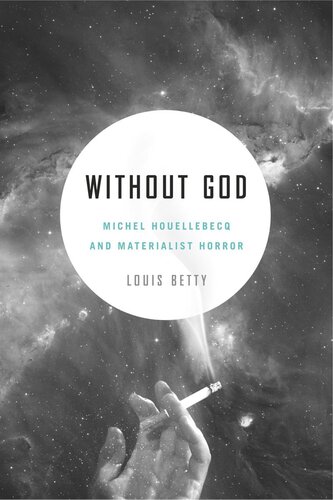

Most ebook files are in PDF format, so you can easily read them using various software such as Foxit Reader or directly on the Google Chrome browser.
Some ebook files are released by publishers in other formats such as .awz, .mobi, .epub, .fb2, etc. You may need to install specific software to read these formats on mobile/PC, such as Calibre.
Please read the tutorial at this link: https://ebookbell.com/faq
We offer FREE conversion to the popular formats you request; however, this may take some time. Therefore, right after payment, please email us, and we will try to provide the service as quickly as possible.
For some exceptional file formats or broken links (if any), please refrain from opening any disputes. Instead, email us first, and we will try to assist within a maximum of 6 hours.
EbookBell Team

4.7
106 reviewsMichel Houellebecq is France’s most famous and controversial living novelist. Since his first novel in 1994, Houellebecq’s work has been called pornographic, racist, sexist, Islamophobic, and vulgar. His caricature appeared on the cover of the French satirical weekly Charlie Hebdo on January 7, 2015, the day that Islamist militants killed twelve people in an attack on their offices and also the day that his most recent novel, Soumission—the story of France in 2022 under a Muslim president—appeared in bookstores. Without God uses religion as a lens to examine how Houellebecq gives voice to the underside of the progressive ethos that has animated French and Western social, political, and religious thought since the 1960s.
Focusing on Houellebecq’s complicated relationship with religion, Louis Betty shows that the novelist, who is at best agnostic, “is a deeply and unavoidably religious writer.” In exploring the religious, theological, and philosophical aspects of Houellebecq’s work, Betty situates the author within the broader context of a French and Anglo-American history of ideas—ideas such as utopian socialism, the sociology of secularization, and quantum physics. Materialism, Betty contends, is the true destroyer of human intimacy and spirituality in Houellebecq’s work; the prevailing worldview it conveys is one of nihilism and hedonism in a postmodern, post-Christian Europe. In Betty’s analysis, “materialist horror” emerges as a philosophical and aesthetic concept that describes and amplifies contemporary moral and social decadence in Houellebecq’s fiction.